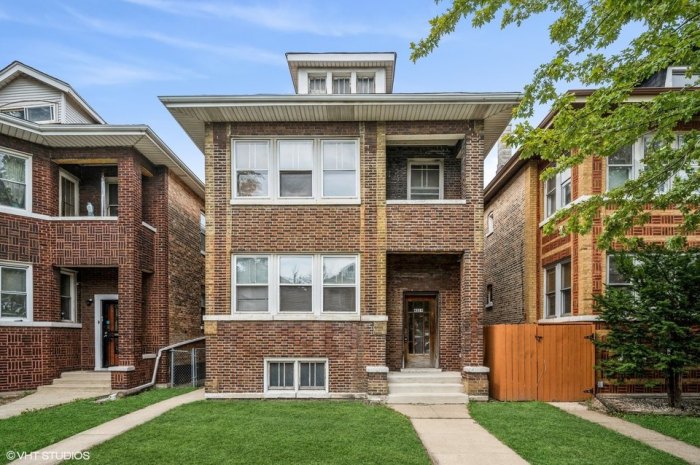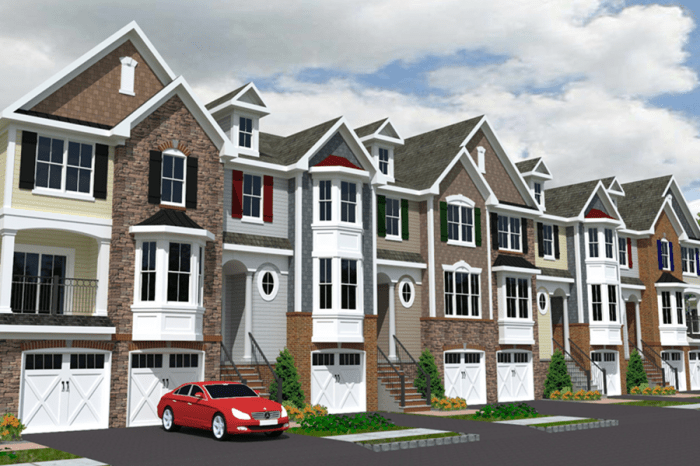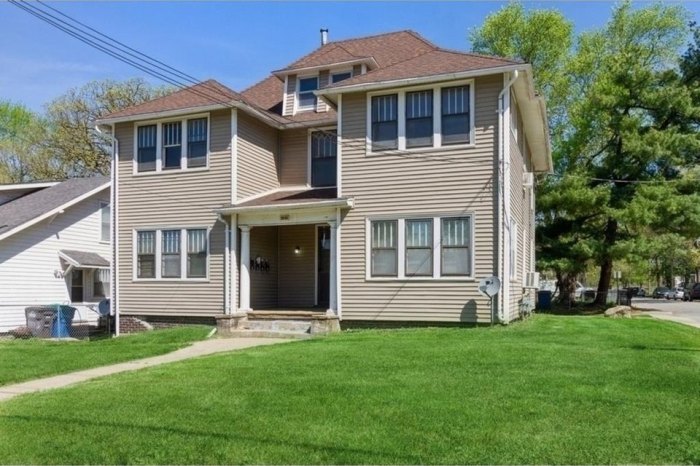Delving into the world of multifamily property for sale, this guide offers insights into the different types of properties available, factors to consider when purchasing, financing options, and tips for finding the perfect multifamily property. Whether you're a seasoned investor or a first-time buyer, this overview will provide valuable information to help you make informed decisions in the real estate market.
Types of Multifamily Properties

When looking for multifamily properties for sale, it's essential to understand the different types available and their unique features.
Duplexes
Duplexes are two-unit properties with separate entrances for each unit. They are popular among first-time investors or homeowners looking to generate rental income while living on the property. Common amenities in duplexes include shared yard space, separate parking areas, and individual utility meters.
Triplexes
Triplexes consist of three separate units within one building. These properties are ideal for investors looking to expand their rental portfolio. Amenities in triplexes often include on-site laundry facilities, outdoor seating areas, and additional storage space for each unit.
Apartment Buildings
Apartment buildings are larger multifamily properties with four or more units. They are typically managed by a property management company and offer a wide range of amenities such as fitness centers, swimming pools, on-site maintenance services, and secure entry systems.
Apartment buildings are suitable for investors looking to maximize their rental income and scale their real estate portfolio.
Factors to Consider When Purchasing a Multifamily Property

When purchasing a multifamily property, there are several key factors to consider to ensure a successful investment. From location to potential rental income and property condition, each aspect plays a crucial role in the decision-making process.
Importance of Location
Location is one of the most critical factors to consider when buying a multifamily property. A prime location can significantly impact the property's value, rental demand, and potential for appreciation over time. It is essential to assess the neighborhood, proximity to amenities, schools, transportation, and job opportunities in the area.
Evaluating Potential Rental Income
Before purchasing a multifamily property, it is essential to evaluate the potential rental income it can generate. Analyze the current market rental rates in the area, vacancy rates, and demand for rental properties. Consider the property's size, unit mix, amenities, and condition to determine the rental income potential accurately.
Assessing Property Condition
Assessing the condition of a multifamily property before purchasing is crucial to avoid unexpected expenses and repairs. Conduct a thorough inspection of the property, including the roof, plumbing, electrical systems, appliances, and common areas. Consider hiring a professional inspector to identify any potential issues that may affect the property's value and rental income.
Financing Options for Multifamily Properties
When it comes to purchasing multifamily properties, exploring different financing options is crucial to finding the best fit for your investment. Whether you opt for a traditional mortgage or consider alternative financing methods, each option has its pros and cons that can impact your investment strategy.
Additionally, understanding how interest rates play a role in financing a multifamily property is essential for making informed decisions.
Traditional Mortgage
One of the most common ways to finance a multifamily property is through a traditional mortgage. This involves borrowing money from a bank or financial institution and repaying it over a set period with interest. Here are some key points to consider:
- Pros:
- Lower interest rates compared to other financing options.
- Predictable monthly payments for easier budgeting.
- Potential tax benefits, such as mortgage interest deductions.
- Cons:
- Strict eligibility criteria, including credit score and income requirements.
- Longer approval process compared to alternative financing methods.
- Down payment typically required, which can be a significant upfront cost.
Alternative Financing
Alternatively, there are various alternative financing options available for purchasing multifamily properties, such as seller financing, private lenders, or hard money loans. Here are some considerations:
- Pros:
- Flexible terms and conditions compared to traditional mortgages.
- Quicker approval process, allowing for faster acquisition of the property.
- Potential to negotiate terms directly with the lender for a customized agreement.
- Cons:
- Higher interest rates and fees compared to traditional mortgages.
- Shorter repayment periods, leading to higher monthly payments.
- Greater risk due to less stringent regulations and oversight in alternative financing.
Impact of Interest Rates
Interest rates play a significant role in determining the overall cost of financing a multifamily property. Here's how they can impact your investment:
- Rising Interest Rates:
-
Higher borrowing costs, resulting in increased monthly payments.
-
Potential decrease in property values due to reduced affordability for buyers.
-
Impact on cash flow and ROI for property investors.
-
- Falling Interest Rates:
-
Potential for lower borrowing costs and decreased monthly payments.
-
Increased affordability for buyers, potentially driving up property values.
-
Improved cash flow and ROI for property investors.
-
Tips for Finding Multifamily Properties for Sale

Finding multifamily properties for sale can be a rewarding investment opportunity. Here are some tips to help you in your search:
Strategies for Searching for Multifamily Properties on Real Estate Websites
When looking for multifamily properties on real estate websites, utilize filters to narrow down your search. Focus on key criteria such as location, size, number of units, and price range. Set up alerts to stay updated on new listings that match your preferences.
Benefits of Working with a Real Estate Agent Specializing in Multifamily Properties
Real estate agents specializing in multifamily properties have in-depth knowledge of the market and can provide valuable insights and guidance throughout the buying process. They can help you identify potential properties, negotiate deals, and navigate complex transactions, saving you time and effort.
Importance of Networking Within the Real Estate Community to Find Potential Multifamily Properties for Sale
Networking within the real estate community can open doors to opportunities that may not be publicly listed. Attend networking events, join real estate groups, and build relationships with other investors, agents, and industry professionals. By expanding your network, you may uncover off-market deals and gain access to exclusive listings that can give you a competitive edge in the market.
End of Discussion

In conclusion, multifamily properties present a unique investment opportunity with the potential for lucrative returns. By understanding the various types of properties, factors to consider, financing options, and tips for finding properties for sale, you can navigate the real estate market with confidence.
Take the first step towards building your real estate portfolio with multifamily properties today.
FAQ Compilation
What are the key differences between duplexes, triplexes, and apartment buildings?
Duplexes have two units, triplexes have three, and apartment buildings have multiple units within a single complex.
How can I evaluate the potential rental income of a multifamily property?
You can assess rental income by analyzing market rental rates, occupancy rates in the area, and the property's condition and amenities.
What financing options are available for purchasing multifamily properties?
Financing options include traditional mortgages, FHA loans, VA loans, and commercial loans tailored for multifamily properties.
What are some strategies for finding multifamily properties for sale?
You can search on real estate websites, work with specialized real estate agents, and network within the real estate community to discover potential properties.













